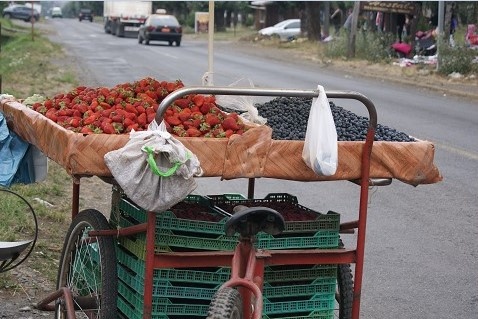https://www.frontiersin.org/re...
About this Research Topic
In Latin America and the Caribbean, increased income, greater urbanization, and labor markets’ participation shifts (with more families in which both parents are at work) are associated with increased consumption of ultra-processed foods of low nutritional value such as, sugary drinks. In addition, the consumption of fast food has grown significantly in some countries of the region, with Brazil and Peru becoming the main consumers of fast food. On the supply side, large supermarket chains dominate food distribution. As result, in the last three decades, the food environment has changed.
Adequate consumption of foods such as fruit and vegetables, is linked with a lower risk of cardiovascular diseases and stroke, decreased risk of depression, and increased natural immunity. For this reason, public authorities have been historically interested in identifying the policies that can help increase healthy food consumption. Knowing social determinants of dietary decisions can be a contribution for designing food policies oriented to increase healthy food intake and reduce nutrition and health disparities. The factors that affect food purchasing are complex and different across the countries, but physical and economic access to healthy food has been historically pointed out as the reason why low-income households consume less than the recommended amount of healthy food.
From a production point of view, sustainability in fruit and vegetable production means considering the economic, social and environmental impacts. The lack of sustainable production may also lead to relevant health disparities. For instance, pesticide misuse may lead to health problems for low-income agricultural workers, and food safety issues at the consumer level. This food safety issue is more likely to be detected before the fruit and vegetables are sold in supermarkets, testing facilities, rather than in traditional markets. At least in some Latino American countries, low-income households mainly purchase fruit and vegetable at traditional markets, while high-income households mainly purchase fruit and vegetable at supermarkets. Therefore, the lack of sustainable fruit and vegetable production can lead to food and health disparities at both the production and consumption levels.
From a population point of view, COVID-19 increased the existing food disparities across income groups. The vulnerable population is the most affected, especially those with low income, low educational levels, and/or malnutrition. Low-income workers are also highly affected, given that their jobs are more informal, their spending is concentrated on basic necessities and services (they spend a higher percentage of income on food) and they have a higher proportion of face-to-face jobs. The greater unemployment in the formal market generates a migration to the informal employment market and a lower income for households. Similarly, women are more prone to be food insecure and the gender gap has only increased with the COVID-19 pandemic.
Given that it is the International Year of Fruit and Vegetables by the Food Agricultural Organization of the United Nations, the goal of this Research Topic is to identify and better understand the determinants that affect the healthy food consumption, such as fruit and vegetables, in Latin America. Ultimately to create better policies towards increasing the consumption of healthy food and improving human nutrition. We invite scholars to submit articles from a wide range of disciplines and approaches. The articles can be quantitative and/or qualitative. Submission of articles from multidisciplinary teams that present novel points of view and/or mixed methods are especially encouraged.
We welcome articles on the following topics, (but are not limited to):
The effect of COVID-19 on food purchases, consumption, and health
Trends in fruit and vegetable consumption in Latin America and the Caribbean
Public policies to increase fruit and vegetable consumption (School feeding programs, subsidies, taxes, information campaigns)
Relation income – education – food consumption
Food deserts: theoretical and empirical advances
Food consumption and food losses and waste
Food sustainable consumption
Food systems and sustainability
Regional disparities on food consumption and health outcomes
The determinants and the effects of food insecurity for vulnerable groups
Gender effects on food consumption
Environmental labelling
One-planet related topics
Pesticide exposure and health risk on agricultural workers
Pesticide exposure and health risk on fruit and vegetable consumption
Biological pest Control as an alternative to pesticide use
Water management
Ecosystem services for sustainability
Keywords: Sustainable consumption, Sustainable production, Fruit and vegetables, Food disparities, COVID-19 food response, Food security, Food systems
Submission: https://www.frontiersin.org/re...


